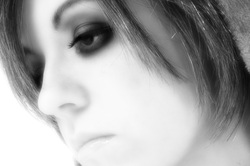Depression & Mood

Your mood is your internal emotional experience of your world and all things in it. It affects the way you think, feel, and behave. It impacts the way you interact with others, the way you think about things, and how you respond to problems.
Sometimes, mood disorders develop and severely impact the way you perceive life, relationships, and even your sense of who you are and your self-worth. If this has happened to you, you may be finding that this disorder has the power to rob you of pleasure, purpose, determination, energy, sleep, self-control, focus, appetite or appetite control, alertness, productivity, and other things that are essential to your definition of what makes life satisfying.
Mood disorders don't discriminate. They occur in persons of all genders, ages, and backgrounds. The first step to finding freedom from a mood disorder is to develop a better understanding of what it is.
There are several types of mood disorders. They are so common many will likely recognize their names. These include:
Major Depressive Disorder
Bipolar
Cyclothymia
Dysthymia
Fortunately, mood disorders can be treated. People who have mood disorders can lead fulfilled, meaningful, and productive lives. Effective options include counseling, neurofeedback, meditation, exercise, and sometimes medication.
There is hope!
Sometimes, mood disorders develop and severely impact the way you perceive life, relationships, and even your sense of who you are and your self-worth. If this has happened to you, you may be finding that this disorder has the power to rob you of pleasure, purpose, determination, energy, sleep, self-control, focus, appetite or appetite control, alertness, productivity, and other things that are essential to your definition of what makes life satisfying.
Mood disorders don't discriminate. They occur in persons of all genders, ages, and backgrounds. The first step to finding freedom from a mood disorder is to develop a better understanding of what it is.
There are several types of mood disorders. They are so common many will likely recognize their names. These include:
Major Depressive Disorder
Bipolar
Cyclothymia
Dysthymia
Fortunately, mood disorders can be treated. People who have mood disorders can lead fulfilled, meaningful, and productive lives. Effective options include counseling, neurofeedback, meditation, exercise, and sometimes medication.
There is hope!
Want to learn more about Mood Disorders?
Check out the links below
Check out the links below
Major Depressive Disorder
Depression In Depth
Depression in Children & Adolescents
Women and Depression
Men and Depression
College Students and Depression
Depression in Children & Adolescents
Women and Depression
Men and Depression
College Students and Depression